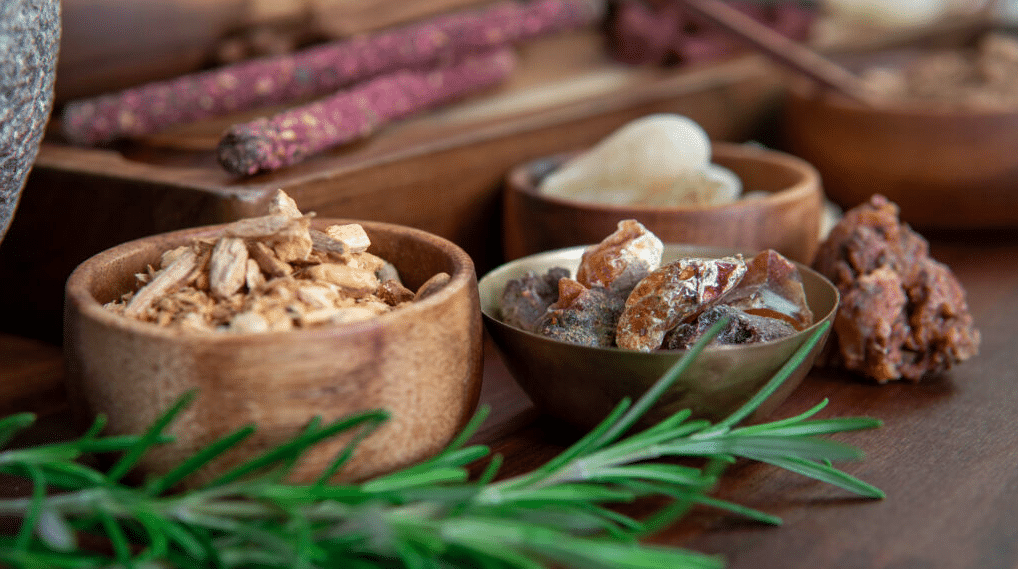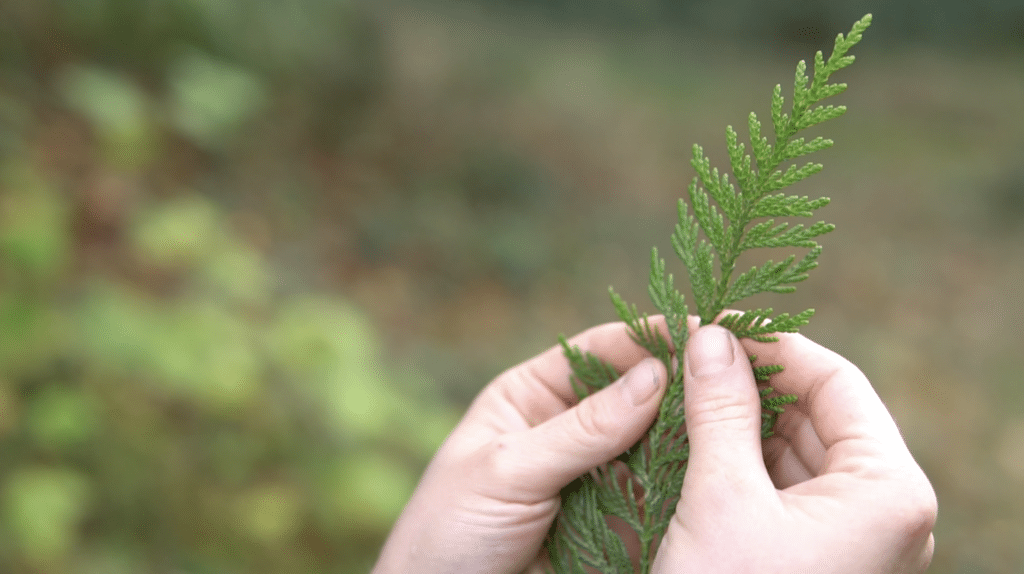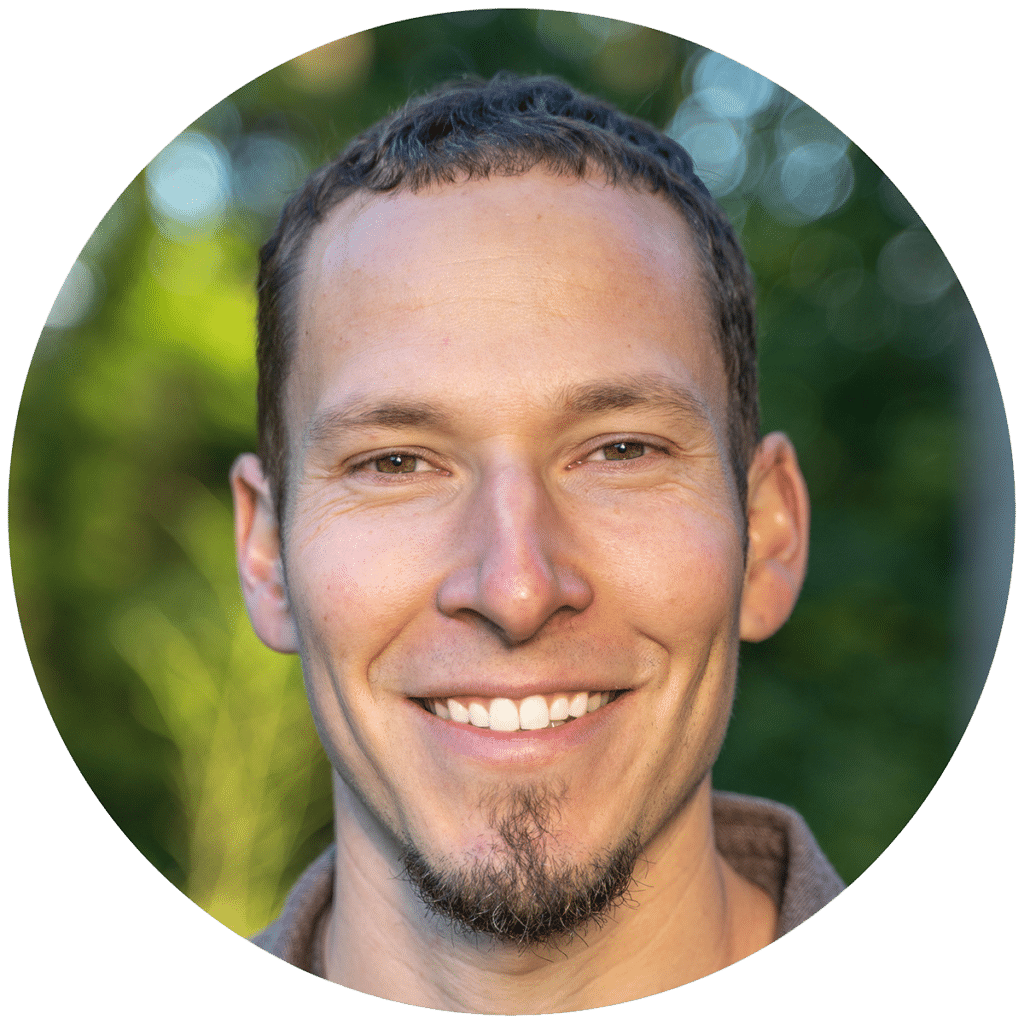Somehow, humanity has gotten stuck in a downward spiral of surrounding ourselves more and more with chemicals. They're in our food system, beauty products, healthcare, and just about everything else. In the field of aromatics specifically, you likely know that synthetic fragrance oils and manmade chemicals are everywhere, and are sometimes hard to avoid.
Even the natural art of incense has been infiltrated by large companies that have removed the heart and soul of the craft in the name of profits. This is simply because using chemicals that mimic natural scents is cheaper than using actual aromatic plants. Today, it's challenging for incense lovers to navigate the store shelves, which contain a majority of synthetic incense products.
The artisan products are out there, it just takes a bit of extra effort to search them out and support them. But when you do, you're voting with your dollar, supporting the environment, and investing in your future health.
In addition to supporting the good guys and gals who create natural, sustainable, and fair trade herbal and aromatic products of all kinds, what's even more important and rewarding is to learn how to make your own herbal or aromatic creations and medicines. Whether you use tinctures, essential oils, or incense, no matter if you practice at home or professionally, this is the best way to ensure you're using 100% natural products and medicines.
In this way, you’re putting your healthcare in your own hands. You can personalize your creations just the way you want them to be, you can use herbs grown in your garden, or learn to wild harvest plants in nature, and add a whole new level of connection and engagement with the plants you work with.
Going deeper into your plant practice like this unveils an incredible amount of new wisdom about plants and healing. And you can learn crucial and useful life skills like the many ways to process down plants and make all sorts of aromatic and medicinal preparations.

Learning the many traditions of old that encompass working with plants in the field and forest or garden, to the crafting table, to the jar or bottle, is what being an herbalist, aromatherapist, or incense practitioner is all about. When you buy 100% of your herbal products, or preprocessed herbs or essential oils that you make into medicines, in a way, you're taking a shortcut and missing out on something really important.
Before the conveniences we have today, where we can so easily order any herbal product online or at a store, the herbalists and aromatherapists before us all had deeper connections to the plants they worked with because they had to harvest their own plants, process their own, and make their own preparations from start to finish. Through understanding the whole picture, they received a greater level of wisdom about healing and about the virtues of the plants they used. This helped them become more effective, wise, and confident healers.
And that's there for all of us if we make the time to nourish the roots of our practice and embrace these traditions more fully.
Learn How to Make Irresistible Incense For
Enjoyment, Healing & Ritual with
✨ The Art of Incense Crafting Ebook ✨
Download Your Free Copy Below

Are you ready to learn how to craft your own natural incense? This free eBook covers the essentials of creating incense that burns beautifully and smells divine, exploring its role as an ancient aromatic medicine and sacred ritual tool. Avoid common pitfalls and unlock step-by-step instructions to make incense cones with ease.
There's nothing wrong with buying pre-processed herbs or packaged herbal and aromatic products, don't get me wrong. But when you solely rely on others to make your medicines or process the herbs you use to make medicines, you're missing a key aspect of being a plant person.
Again, supporting the artisan crafters out there in the herbal and aromatic communities is really important. But with the modern conveniences of being able to buy just about anything these days, it can be easy to get stuck in the pattern of overdoing it and relying on it 100%. Sometimes it can just make us lazy. And I've been there before myself.
When we go out into the wild to be with the plants more, harvest our medicines ourselves more often and bring them back to make them into incense, or distill them into essential oils with our own stills, or process them into all kinds of preparations, beauty products, or medicines, a deeper sense of fulfillment, pride and joy, and greater knowledge opens to you.

Collectively, we need to get to know our plants more, and get to know our tools of the trade and the many processes of the herbalists, healers, and incense crafters that came before us, because there’s so much beauty, wonder and wisdom awaiting you inside these ancient traditions.
There’s always another skill to learn, a new preparation to master, a new type of incense to learn how to make, a new plant to learn how to grow or harvest. And it’s all incredibly beautiful.
Even if you start small and just make a little more time to plant a small herb garden in the spring, learn how to make a new incense, go out and harvest some conifer resin, or go out and meet and harvest from a plant in the wild that you’ve never met before but maybe you’ve been buying its essential oil or tincture for a while.
We can all benefit from working with our hands a little bit more. Dive into the realm of aromatic medicine, learn some new processes behind the herbal and aromatic arts that you love so much, learn some more traditions, nourish your roots, and I promise you’ll be blessed with a lot of wisdom, confidence, and joy when you do.
Video & Article by Evan Sylliaasen

Evan Sylliaasen is the founder of the Northwest School of Aromatic Medicine and Higher Mind Incense. For the past decade his incense company has been a leader in sustainability and conscious sourcing of aromatic plants. As the head instructor of his online school, he teaches aromatherapists, incense lovers, herbalists, and spiritually-minded folks the traditional art of incense crafting, incense as medicine, and the art of wild-harvesting aromatic plants responsibly.
Evan lives with his family in the foothills of the Olympic Mountains of Washington state. He channels his creative passions through writing, photography, wood working, craftsman building, and music. When he’s not working, he’s out in the garden, forest and fields, walking along rivers, beaches, or in the mountains breathing deeply.
© 2025 The Northwest School of Aromatic Medicine. All rights reserved.
*The statements above have not been evaluated by the FDA, and are for educational purposes only. This article is not intended to diagnose, treat, cure, or prevent any disease. This article should not be taken as medical advice. Please consult your physician before you use this information for health purposes.
